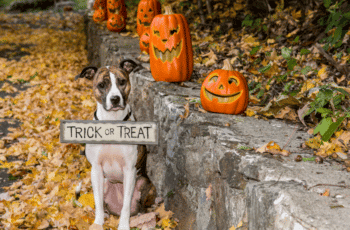When you bring a new puppy into your home, you may be wondering about all the changes and milestones they will go through. One question that often comes up is whether dogs lose their baby teeth, just like humans do. As a dog owner myself, I was curious to learn more about this topic. So, I did some research and spoke to my veterinarian to find out everything there is to know about dogs and their baby teeth. Let’s delve into this fascinating subject together!
The Teething Process
Just like human babies, puppies go through a teething process as they grow. Around the age of three to four weeks, a puppy’s baby teeth, also known as deciduous teeth, start to emerge. These small, sharp teeth help them chew their food and explore their world. By the time a puppy is eight weeks old, they should have a full set of baby teeth.
As puppies continue to grow, their jaws and teeth develop, and the baby teeth become looser. This is when the teething process really kicks in. Similar to human infants, puppies may experience discomfort during this time. You might notice them chewing on various objects or even your fingers to relieve the discomfort. It’s important to provide appropriate teething toys to redirect their chewing behavior and protect your precious belongings!
By the time a puppy is around four to six months old, their adult teeth start to come in. As the adult teeth push through the gums, they gradually replace the baby teeth. This process can take several months to complete, and it’s essential to monitor your puppy’s mouth during this time to ensure everything is progressing as it should.

Signs of Tooth Loss
So, how do you know if your puppy is losing their baby teeth? Well, there are a few signs to look out for. Firstly, you may notice that your puppy’s gums appear red and slightly swollen. This is a normal part of the teething process as their adult teeth push through. Additionally, you might find small, sharp baby teeth around your home or in your puppy’s bedding. Although they are tiny, these teeth can be a fascinating discovery!
Another indication that your puppy is losing their baby teeth is a sudden decrease in their appetite or difficulty eating. This can be caused by the discomfort associated with teething. If you notice any of these signs or have concerns about your puppy’s teeth, it’s always a good idea to consult your veterinarian for guidance.
Remember, during this time, your puppy’s mouth can be sensitive, so be gentle when examining their teeth or providing dental care. Patience and understanding go a long way in helping your furry friend through this phase.

Caring for Your Puppy’s Teeth
Just like with adult dogs, dental care is crucial for puppies. Establishing good oral hygiene habits early on can contribute to their overall health and well-being. While your puppy is teething, it’s essential to continue brushing their teeth regularly. Use a soft-bristled toothbrush and dog-friendly toothpaste to gently clean their teeth and gums.
See also

You can also introduce your puppy to a variety of dental chews and toys to help alleviate discomfort and encourage healthy chewing habits. These products can help remove plaque and tartar buildup, promoting good oral health.
Lastly, regular veterinary check-ups are vital during your puppy’s teething phase. Your vet can monitor the progress of their adult teeth and address any concerns or issues that may arise. They may also recommend professional dental cleanings as your puppy grows older to ensure their teeth remain healthy and strong.

Conclusion
As we’ve explored, dogs do indeed lose their baby teeth. The teething process is a normal and necessary part of their development. By understanding this process and providing appropriate care, you can help your puppy navigate through this phase with ease.
Remember, observing the signs of tooth loss, caring for your puppy’s teeth, and seeking guidance from your veterinarian are all crucial elements in ensuring your furry friend’s dental health. With proper attention and care, your puppy will soon have a beautiful set of adult teeth to chew on for years to come!

